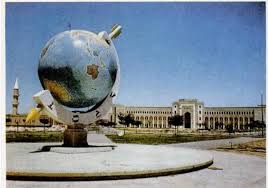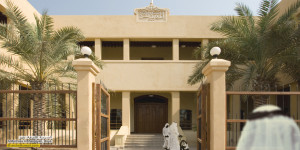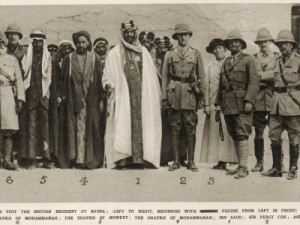Muslim Brotherhood “thinkers/propagandists” in the Gulf region have been recently blasting the UAE government about developments in the southern Yemeni city of Aden. Apparently the UAE is exerting some influence in that port city.
They are too fearful to criticize the Saudis (or their Bahraini appendix) openly, since local Saudi (and Bahrain) embassies in the GCC states have been actively pressing host governments to prosecute and persecute public critics. It it now considered a ‘crime’ to insult other GCC regimes, even on Twitter and Facebook. It is also a crime in the GCC to criticize Al Sisi of Egypt. (In a positive step, a Kuwaiti court last week rejected this argument, opening the door for more freedom of expression).
Many Gulf Islamists are strongly tribal, and some have tribal roots inside Saudi Arabia. That, as well as an enduring alliance with Salafists (also dominated by pro-Saudi tribal ties), keeps many Gulf Muslim Brotherhood (outside UAE & Qatar) from criticizing the Saudis openly. Most Gulf MB outside the UAE and Oman have roots from Saudi kin. Hence they go easy lest they upset tribal (as well as business) allegiances and balances.
In that sense, especially in Kuwait and Bahrain, the MB are essentially as Wahhabi as the local Salafis are. In Qatar, it is likely that any public strong criticism of Turkey’s strongman Erdogan is not tolerated.
Oddly, or maybe not, this is also true for many Persian Gulf academic and media types with tribal affiliations (even those who are classified as ‘liberals’ by twisted Gulf standards). Most proclaim support for freedom/democracy, but not in the Gulf region, especially not in Saudi Arabia or Bahrain. A unique Gulf version of the American term NIMBY (Not In My Back Yard).
The MB in Kuwait, for example, these days seem to think that the Saudis are accommodating the Houthis of Yemen too much. Meaning they are still bombing their towns, but not as intensely as in the past fourteen months. It must be kept in mind that the powerless former Yemeni president Generalissimo Abd Rabuh Hadi was and is allied with the Islah, the notoriously corrupt local version of the MB. But they keep their “best” and most vocal criticism for the UAE, which is the most antagonistic Arab regime toward the MB (other than Egypt). But they criticize the UAE without mentioning it: a skill some Gulf Islamists have mastered in recent years.
(On the other hand, it is also unacceptable in Iran to openly and strongly criticize allies like the Syrian government or Hezbollah in the media. Even though there are no tribal ties involved. Just strategic and some sectarian ties).
Cheers
Mohammed Haider Ghuloum












